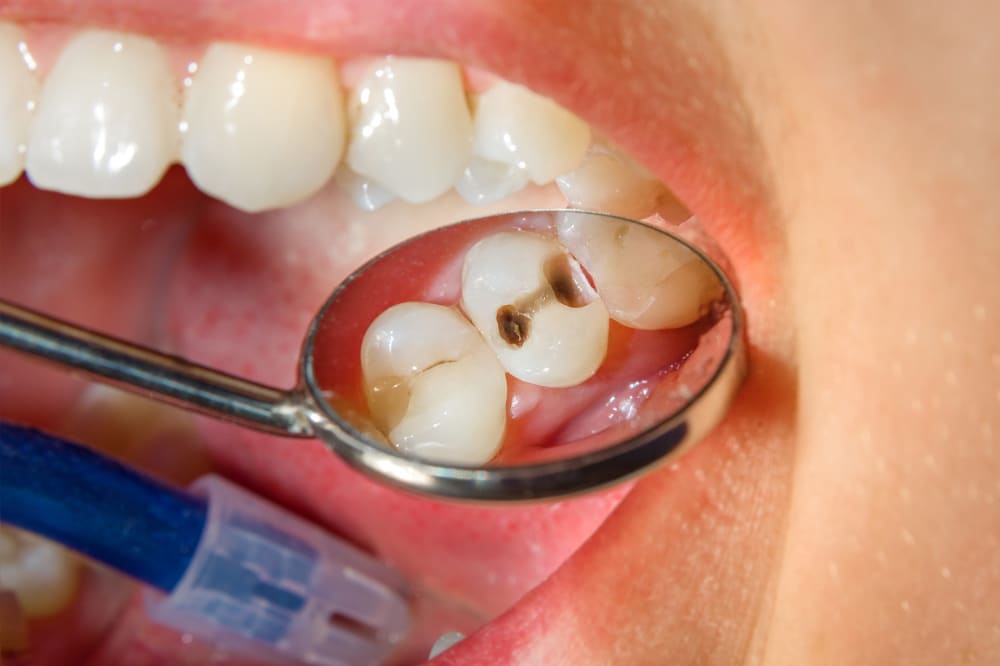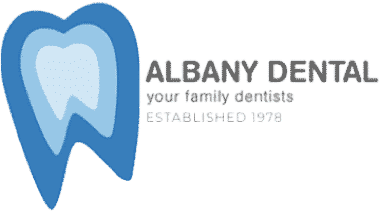Tooth decay, also known as cavities, is a common dental problem. While the concept seems simple, the progression and treatment options can be intricate. Understanding tooth decay is the first step towards prevention. Being aware of the signs and stages ensures that you can take timely action, keeping your smile healthy. In this guide, we’ll delve into the stages of tooth decay, discuss available treatment options and share insights on how to maintain your oral health.

Understanding Tooth Decay
Our mouth hosts a wide variety of bacteria, many of which are harmless. However, certain types of bacteria feed on the sugars we consume to produce acids. Over time, these acids can create cavities in the hard surface of the teeth.
The Stages Of Decay
The progression of tooth decay is a multi-stage process, often starting without noticeable symptoms. However, it can rapidly escalate if not addressed on time:
- Initial Demineralisation: White or chalky areas appear on the tooth’s surface. This stage is due to the loss of calcium and phosphate from the enamel. It’s reversible with proper oral care and fluoride treatment.
- Enamel Decay: The enamel starts to break down and small cavities or holes may start to form. Once the enamel is breached, the decay process accelerates.
- Dentin Decay: Decay moves from the enamel to the underlying dentin. Sensitivity often occurs as the dentin is connected to the nerve of the tooth.
- Pulp Involvement: The pulp of the tooth becomes inflamed (pulpitis). This can lead to pain and may require a root canal treatment.
- Abscess Formation: If left untreated, an infection can spread from the pulp to the surrounding tissues. This stage can lead to severe pain and swelling.
Factors Contributing To Decay
Apart from the bacteria, numerous factors play a role in initiating or accelerating tooth decay:
- Diet: Frequent consumption of sugary or acidic foods and beverages.
- Oral Hygiene: Inadequate brushing and flossing.
- Saliva Flow: Reduced saliva production can mean less natural washing away of food particles and acids.
- Dental Appliances: Braces or other devices that can trap food if not cleaned adequately.
Treatment Options
The type of treatment largely depends on the stage of the decay:
- Fillings: These are commonly used to treat cavities. It involves removing the damaged tooth material and replacing it with a filling material.
- Root Canal Treatment: It is necessary when decay reaches the pulp. During the procedure, the pulp is removed and the space is cleaned and sealed.
- Crowns: These are used when a large portion of the tooth is damaged. The decayed or weakened area is removed and covered with a crown.
- Extractions: In severe cases where the tooth can’t be saved, extraction may be required.
How To Prevent Tooth Decay
Maintaining a proper oral care routine helps in the prevention of tooth decay:
- Regular Brushing: Brush twice a day using fluoride toothpaste. Make sure to replace your toothbrush every three months or when the bristles fray.
- Floss Daily: It helps remove food particles and plaque from between teeth and below the gum line.
- Regular Dental Check-ups: Visit your dentist every six months. Regular check-ups help in the early detection and treatment of potential issues.
- Healthy Diet: Limit sugary and acidic foods. Also, drink water throughout the day.
Considering A Dental Check-up?
At Albany Dental, we offer a range of services for families and individuals, from dental cleaning and cosmetic enhancements to custom dentures. Whether you require a specific service or a routine dental check-up, our dentists on the Central Coast can help. Contact us to schedule an appointment.











